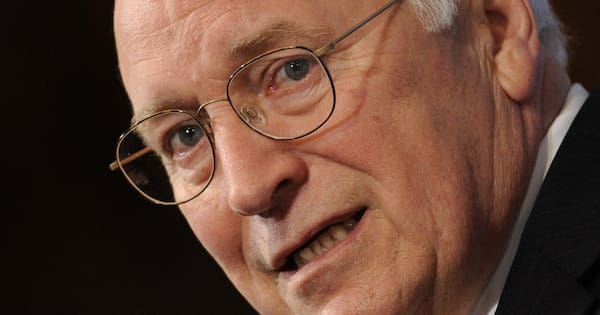Remembering Dick Cheney: A Polarizing Figure in American Politics
Dick Cheney, the hard-charging conservative known for his pivotal role in shaping U.S. foreign policy, particularly during the Iraq War, has passed away at the age of 84. His family announced that he died due to complications from pneumonia and ongoing heart-related issues. Cheney had a long and storied career, serving under both George H.W. Bush and his son George W. Bush, and he is remembered as one of the most powerful—and controversial—Vice Presidents in American history.
Early Life and Political Beginnings
Born in Lincoln, Nebraska, and raised in Wyoming, Cheney’s journey into politics began in 1968 as a congressional fellow. He quickly became a protégé of Donald Rumsfeld, eventually ascending to the role of chief of staff for President Gerald Ford at just 34 years old. Following a brief return to Wyoming, Cheney won the state’s lone congressional seat and was re-elected five times. His early experiences set the stage for a long-term career that would firmly entrench him as a key player in American politics.
The Defense Secretary and The Persian Gulf War
In 1989, Cheney was appointed Secretary of Defense under George H.W. Bush, where he had a front-row seat during the 1990-91 Persian Gulf War. Leading the Pentagon, Cheney was instrumental in the coalition that expelled Iraqi forces from Kuwait. His handling of the war showcased his commitment to a strong military and an assertive U.S. foreign policy—principles that would carry through to his later role as Vice President.
A Vice President Unlike Any Other
Upon George W. Bush’s election in 2000, Cheney secured the Vice Presidency, a position he would mold into one of significant influence. Unlike his predecessors, he operated more like a chief operating officer than a traditional VP, wielding substantial authority over policy decisions on issues ranging from national security to energy. Cheney’s unique relationship with Bush allowed him considerable leeway to drive an agenda largely in line with his conservative beliefs.
Cheney’s proactive stance on a range of controversial policies, particularly in the wake of the September 11 attacks, underscored his hardline approach. He defended extensive surveillance and interrogation techniques—practices that would later face heavy scrutiny and criticism.
The Iraq War: Conviction and Controversy
One of Cheney’s most defining moments came with the initiation of the Iraq War in 2003. A staunch advocate for the invasion, he argued that Iraq possessed weapons of mass destruction and had ties to terrorist groups—claims that were ultimately proven wrong. Despite this misjudgment, Cheney remained steadfast in his beliefs about the war, often asserting that liberation would be welcomed by Iraqis—reality soon proved otherwise.
Critics argue that Cheney’s insistence on going to war, combined with his aggressive interpretation of executive power, led to prolonged conflict and significant casualties, altering the course of American foreign policy for years to come.
Personal Convictions and Family Ties
Despite his often polarizing public persona, Cheney revealed a more complex character in his personal life. He consistently supported his daughter Mary Cheney after she publicly came out as gay, famously stating, “Freedom means freedom for everyone.” This stance stood in stark contrast to some of the views held by the conservative base he represented.
Moreover, Cheney’s relationship with his daughter Liz became a focal point in the political arena, particularly as Liz emerged as a vocal critic of Donald Trump. Cheney publicly expressed his disapproval of Trump’s actions during and after the 2020 election, describing him as a “coward” and a threat to American democracy.
A Life of Contradictions
Cheney’s approach to governance often seemed both meticulous and enigmatic. His penchant for secrecy and backstage maneuvering led to perceptions of him as a Machiavellian figure. A key instance of this was the infamous hunting accident in 2006, when he shot a friend during a quail hunt, an event that attracted widespread media attention and scrutiny.
As he navigated the complexities of power, Cheney often joked about his reputation, quipping, “Am I the evil genius in the corner that nobody ever sees come out of his hole?”
Legacy and Reflection
Dick Cheney’s lengthy career is marked by significant contrasts. While celebrated by many conservatives for his steadfastness, he became a polarizing figure whose decisions activated debate on civil liberties, national security, and foreign intervention. As George W. Bush remarked, Cheney will be remembered as a “decent, honorable man,” but opinions on his legacy remain divided.
By the time of his passing, Cheney viewed each day as a gift, often expressing gratitude for the time he had, a sentiment that belied the steely resolve he portrayed in the corridors of power. Though his physical presence has left the stage, the impact of his decisions continues to evoke discussion, shaping narratives around executive authority and American interventionism for years to come.



